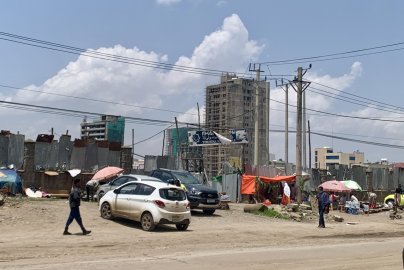Sudanese Refugees in Ethiopia Struggle with Homelessness
The Plight of Sudanese Refugees
Sudan has long been a country plagued by conflict and instability, pushing many of its citizens to seek refuge in neighboring countries. One of the primary destinations for these refugees is Ethiopia, which has opened its doors to those in need. However, the reality for many Sudanese refugees in Ethiopia is far from hopeful. They face severe hardships, particularly in securing stable housing, which often leads to homelessness.
Challenges Faced by Refugees
The challenges that Sudanese refugees encounter in Ethiopia are multifaceted:
These factors contribute to a growing number of homeless Sudanese refugees in urban centers across Ethiopia, particularly in cities like Addis Ababa.
Recent Developments in Immigration Policies
As the situation for Sudanese refugees deteriorates, international attention is being drawn to their plight. Recent immigration news highlights a pressing need for humanitarian support and policy reform. The United Nations and various NGOs are calling for increased aid and resources to assist these vulnerable populations.
Moreover, there have been discussions surrounding humanitarian parole programs that could provide temporary relief for refugees. Such programs aim to grant individuals the right to live and work legally in host countries for a specified period. This could significantly alleviate the struggles faced by Sudanese refugees in Ethiopia, allowing them to focus on rebuilding their lives.
Community Support and Initiatives
Several organizations are working tirelessly to support Sudanese refugees in Ethiopia. These initiatives focus on:
Despite these efforts, the scale of the crisis often outpaces the available support, leaving many refugees in precarious situations.
The Way Forward
Addressing the homelessness crisis among Sudanese refugees in Ethiopia requires a concerted effort from multiple stakeholders, including governments, NGOs, and international organizations.
Key strategies could include:
As the world grapples with ongoing humanitarian crises, the plight of Sudanese refugees serves as a poignant reminder of the need for compassion and proactive measures to address such challenges.
Conclusion
The situation for Sudanese refugees in Ethiopia is dire, with many facing homelessness and uncertainty. It is crucial that local and international communities unite to provide the necessary support and resources to help these individuals rebuild their lives. Through compassionate policies and community initiatives, we can work towards a future where every refugee has the opportunity to live with dignity and security.
In conclusion, addressing the struggles of Sudanese refugees in Ethiopia is not just a humanitarian obligation but a reflection of our shared humanity. The world must act decisively to ensure that no one is left behind, regardless of their origin or circumstances.










